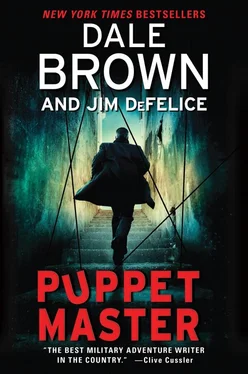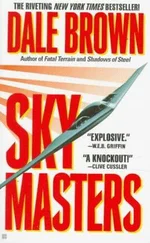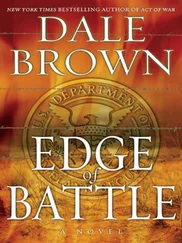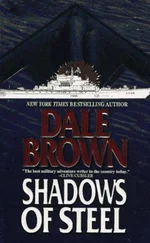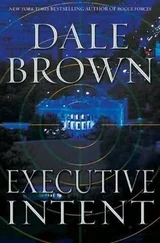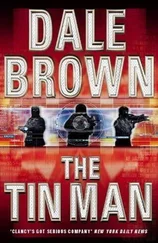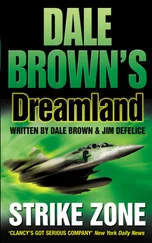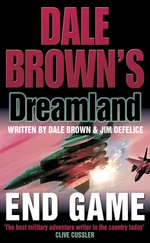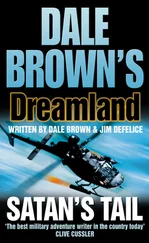“What are you talking about?”
“You haven’t solved the case, have you?” said Massina.
“Like hell. As soon as Gabor Tolevi comes back to the States, we move in. We already worked that out.”
“First of all, he’s missing,” said Massina. “And second of all, he’s not the one who did this.”
“What do you mean?”
“Maybe you should go back inside and call the U.S. attorney. Agree to the terms, sign on the dotted line, and then we’ll explain. Everything will work out, I guarantee.”
“You guarantee?”
Was this the same man who had sat with Jenkins and his wife all day when their daughter was being operated on and then fitted with the prosthetic? He had seemed so kind then, and understanding. Jenkins knew that Massina was no fool; not only was he a Boston native but no one could do business on the scale he did without a good helping of street sense. Still, his tone and the sharp-elbow approach didn’t quite jibe with the man Jenkins thought he knew.
“Do you trust me, Trevor?” asked Massina, sounding for just a moment like the kind man who had helped give Jenkins’s daughter a new lease on life. The words were exactly those he had used when they’d hesitated about the operations.
Do you trust me?
He’d nodded. What choice had he had? To see his daughter walk again, he’d have done anything.
And now?
What choice did he have, really?
“Let me call my boss,” he told Massina.
* * *
Borya looked up as Chelsea came into the room.
“We need you now,” she said. “Are you ready?”
“Did you find my dad?”
“We’re working on that,” Chelsea told her. “That’s going to take a little time.”
“Where is he?” asked Martyak. “He really should be involved. It’s his decision.”
“This is what’s best for Borya,” Chelsea told her. “And he can choose to ratify it or not. But otherwise, she’s going to jail. And for a long time. These are serious crimes.”
Borya lowered her head. If her father hadn’t been missing, all of this would have been different. She’d have been able to tough it out.
But losing him was too much. She felt as if she’d been stabbed with a knife a hundred times.
God, please, get him back. Make them help me! Get him back.
Borya glanced over at Beefy Bozzone, who’d been keeping them company, playing cards and telling her stories about dogs he’d owned. He seemed to have had nearly a hundred of them, with a particular fondness for pugs, “ ’cause you just about keep ’em in your pocket.”
His pocket, maybe. He was big.
“Are you going to come with me?” she asked him.
“No one’s gonna hurt you,” he told her.
“I know, but—”
“Yeah, I’ll come,” said Beefy. “And you guys owe me twenty cents and fifty-five,” pointing first to Borya, then to Martyak. “Don’t forget.”
“What?” asked Chelsea.
“Card game,” he explained. “A debt’s a debt.”
Donetsk — about the same time
Tolevi brooded silently as they drove, angry with himself for not figuring out that Dan was a plant. It was the sort of mistake that could have gotten him killed — and still might.
The butcher’s brother sat behind him in the car. Aside from answering Tolevi’s question—“Are you the brother?”—in the affirmative, he’d said only one thing since getting in the car: “ Starobeshevskaya. ”
It turned out that Starobeshevskaya was a small city centered around a power plant some forty-five minutes south of Donetsk. The power plant and city were separated from the surrounding area on the north and west by a wide lake and reservoir. Security was intense; they were stopped at a checkpoint a mile from the only bridge on that side of the water, and nothing Dan said about “urgent business” could convince the poorly dressed rebel guard to let them through. His gun was persuasive, but the two cars parked across the approach made it clear this was not going to be the way into town.
They drove back about three kilometers and turned south, circling around the lake to approach the area from the east. There was another checkpoint; this time Tolevi handled it.
“I have business with the mayor,” he said in dismissive Russian, leaning across Dan as he rolled down the window. “We’re late.”
The man asked for their identity papers.
“We’re Russian, you idiot,” said Tolevi.
He grabbed Dan’s ID before he could give it to the guard.
“Drive!” he demanded.
Flustered, Dan threw the car into gear and drove ahead.
“Awful ballsy,” he said when they were clear.
“Sometimes you just have to play the part,” said Tolevi.
“He’ll probably call ahead,” said the brother from the back. He spoke in Ukrainian, while Dan and Tolevi had used Russian.
“That’ll be fine,” said Tolevi.
“Where do we go?” asked Dan.
“To the prison.” Tolevi turned around. “Tell me about your brother. Tell me everything you know.”
* * *
The butcher — Olak Urum — had been a member of the rebellion until a few months before. But he had fallen out with the leadership over two issues: first, he had opposed Russian “assistance” in the revolution, believing it would not only taint the movement but also lead to annexation, something he didn’t want. And second, he had become disillusioned over the amount of corruption in the newly installed “People’s Government.” Apparently he had made the mistake of protesting this to the head of the Donetsk People’s Army Council — the rebel leadership, of which he was a member — and had subsequently been arrested on trumped-up corruption charges. The butcher owned the shop; the brother was just a helper.
“The charges, they could make them because we always had meat,” said the butcher’s brother. He hadn’t bothered to give his first name. Tolevi decided that was fine; the less he knew, the better. “Even in the worst time, with the blockade, our shop was open.”
“And how did you manage that?” asked Tolevi.
“I don’t know. My brother handled the business always.”
Tolevi was skeptical — chickens were one thing, but only someone very well connected would be able to bring in large quantities of good beef.
“The people at the prison, did they know your brother before he was arrested?” Tolevi asked.
“I don’t think so.”
“Your brother wants to be saved?”
“He wants to liberate all of Ukraine,” said the brother. “He has information to expose the rebels. They are very corrupt. A reunion with the west is the only way.”
It wasn’t the most heartfelt declaration, Tolevi thought, but he wasn’t here to judge where the man’s ultimate loyalties lay. He was just here to get him the hell out of Donetsk.
The Starobeshevskaya power plant was a massive installation. It burned coal; despite claims that it was one of the “greenest” plants in Eastern Europe, a heavy smog hung over the region as they drove toward the town that supported it.
If the brother’s story was true, freeing the butcher would be relatively easy, so long as Tolevi could come up with the money. Dan’s presence convinced him that wouldn’t be a problem; he suspected that Johansen simply wanted a bit of distance between the Agency and the rebels if things went wrong. But before he could start spending the CIA’s money, he needed to get a feel for the situation. Who was the highest authority? Was the “mayor” beholden to the rebels who guarded the prison, or vice versa? Where were the Russians in all this?
Hopefully far away.
He also wanted to find out about the prison itself. If, as with many Ukrainian facilities, the prison was old and ill maintained, it might be easiest to bribe a few guards and skip the mayor or warden completely.
Читать дальше
